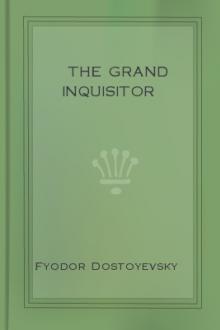Apologia Pro Vita Sua by John Henry Newman (books you need to read .txt) 📕

- Author: John Henry Newman
- Performer: -
Book online «Apologia Pro Vita Sua by John Henry Newman (books you need to read .txt) 📕». Author John Henry Newman
The very same sentiments, according as our jealousy is or is not awake, or our aversion stimulated, are tokens of truth or of dissimulation and pretence. There is a story of a sane person being by mistake shut up in the wards of a Lunatic Asylum, and that, when he pleaded his cause to some strangers visiting the establishment, the only remark he elicited in answer was, "How naturally he talks! you would think he was in his senses." Controversies should be decided by the reason; is it legitimate warfare to appeal to the misgivings of the public mind and to its dislikings? Any how, if my accuser is able thus to practise upon my readers, the more I succeed, the less will be my success. If I am natural, he will tell them "Ars est celare artem;" if I am convincing, he will suggest that I am an able logician; if I show warmth, I am acting the indignant innocent; if I am calm, I am thereby detected as a smooth hypocrite; if I clear u





Comments (0)